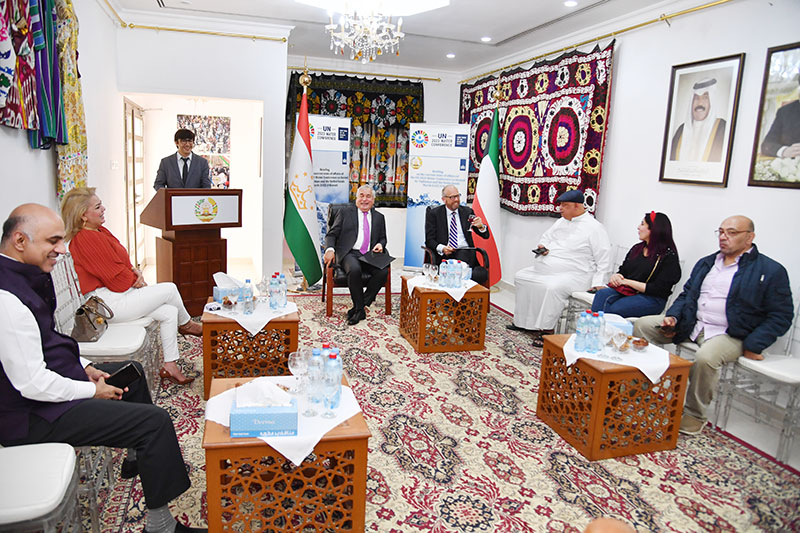Under the leadership of President Emomali Rahmon, Tajikistan has worked tirelessly to make the UN 2023 Water Conference possible after several years in the making. A watershed moment: not only for the global water agenda but more importantly for sustainable development at large. The UN 2023 Water Conference, which will be held in New York from 22 to 24 March, will raise global awareness on water. It will bring together indigenous people, youth, women and businesses from across the world along with financiers and innovators.
The UN 2023 Water Conference will be hosted by the United Nations at the end of this month on a Tajik-Dutch initiative, said Dean of the Diplomatic Corps and Ambassador of Tajikistan, H.E. Dr. Zubaidullah Zubaidov during a media conference he held on 8 March, along with the Ambassador of The Netherlands, H.E. Lawrence Westhoff and the Acting Representative of the Secretary-General of the United Nations, Dr. Asad Hafeez.
Ambassador Zubaidov began by noting that for more than two decades, Tajikistan along with The Netherlands, has been advocating the global water agenda due to the great importance that the two countries attach to this issue, and to the climate change phenomena.
He pointed out that Tajikistan has so far launched eight resolutions related to water at the United Nations General Assembly, explaining that the global initiative on fresh water, international cooperation and now water for sustainable development contributes greatly to the advancement of water-related goals, to provide a platform on sustainable development and integrated water resources management to achieve social, economic and environmental goals.
He added that there was strong cooperation over the past two years between the Netherlands, Tajikistan, the United Nations Department of Economic and Social Affairs (DESA) and the United Nations Committee on Water, to organize the United Nations Conference on Water.
For his part, Ambassador Westhoff, expressed his pride in his country’s participation in the first UN-dedicated conference on water in nearly 46 years, which will be jointly organized by Tajikistan and the Netherlands to assess progress made in the International Decade of Action for Water in 2023.
According to the World Commission on Water Economics, more than two billion people do not have access to safely managed water, and one child under the age of five dies every minute because of polluted water.
The Dutch Ambassador stressed on the importance of taking measures to restore balance in the global water cycle to ensure universal access to safe drinking water and to enable water to support economic development and sustainable growth, calling for the need to reorient water management locally and globally. He said, “We are working with Kuwait to develop technologies to improve water use. We are also cooperating with a Kuwaiti company on using hydroponics that use minimal water for producing plants in greenhouses. The company’s mission will end in May, when it will be able to produce vegetables using this technology.”
Speaking at the media conference, Acting Representative of the UN Secretary-General Dr. Hafeez, expressed his thanks to the Embassy of Tajikistan for organizing this important briefing on the United Nations Water Conference 2023, which will be held in New York from March 22 to 24.
He added that this conference is the first for the United Nations to focus on water since 1977 and is a pivotal moment to accelerate action in the field of water to achieve Sustainable Development Goal No. 6 on water and sanitation.
Turning to Kuwait, he said that the main water challenges the country faces are from increasing water scarcity, and the growing financial, economic and environmental impacts associated with meeting the demand for water in these sectors. These challenges are expected to increase due to rapid population growth and urbanization, increased demand for food, the effects of climate change, and unsustainable consumption , water losses, insufficient water reuse, and the continuous degradation and depletion of groundwater resources.

